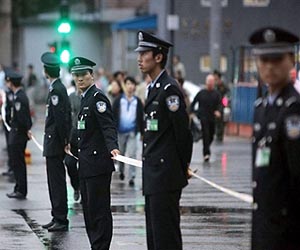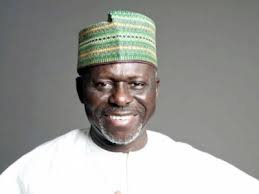Chinese police charge British former head of GSK in China with bribery
Chinese police on Wednesday said they had charged the former British boss of drugmaker GlaxoSmithKline PLC’s China business and other colleagues with corruption, after a probe found the firm made billions of yuan from elaborate schemes to bribe doctors and hospitals.
Mark Reilly and two Chinese executives, Zhang Guowei and Zhao Hongyan, were also suspected of bribing officials in the industry and commerce departments of Beijing and Shanghai, the official Xinhua news agency reported, quoting police in Hunan province.
The case is the biggest corruption scandal to hit a foreign company in China since the Rio Tinto affair in 2009, which resulted in four executives, including an Australian, being jailed for between seven and 14 years.
“(GSK) departments offered bribes to hospitals and doctors as well as personnel to boost their sales. The money involved was in the billions of yuan,” a Ministry of Public Security official told a press conference in Beijing.
The charges – which carry a maximum sentence of life in prison in the case of bribery – were seen as harsher than many industry insiders and China-based foreign executives had expected.
Officials gave no specific details on the amount of bribes paid or exactly how much the company had illegally earned, although they had previously accused the firm of funneling up to 3 billion yuan ($482 million) to travel agencies to facilitate bribes to doctors and officials.
“We take the allegations that have been raised very seriously. They are deeply concerning to us and contrary to the values of GSK,” the drugmaker said in a brief statement issued in London, its headquarters.
“We want to reach a resolution that will enable the company to continue to make an important contribution to the health and welfare of China and its citizens.”
Shares of London-listed GSK were trading down one percent, underperforming a 0.2 percent drop in the broader FTSE 100 index.
GSK has said that some of its senior Chinese executives appeared to have broken the law. It has also said it has zero tolerance for bribery, calling the allegations in China “shameful”.
Reilly briefly left China when the scandal broke in July last year but voluntarily returned to cooperate with police. Attempts to reach him on Wednesday were unsuccessful. He was replaced as GSK’s China head on July 25 last year, 10 days after the initial Chinese police accusations.
A spokesman for the British consulate in Shanghai said officials were in regular contact with Reilly and were providing consular assistance. The spokesman declined to comment on Reilly’s whereabouts.
The charges against the British executive shocked the business community as GSK had previously said it believed the alleged corruption involved senior Chinese staff only.
Kenneth Jarrett, president of the American Chamber of Commerce Shanghai, said he was surprised at the “strong response” from the police.
“I would agree that it’s not what I would have expected because it seemed like GSK were cooperating very closely with the authorities,” he told Reuters.
“I don’t think that anyone had been lulled back into complacency, but if anybody had this will wake them up,” Jarrett added. The GSK scandal had spurred many foreign corporations in China to increase vigilance against bribery.
Other large international drugs manufacturers including Novartis AG, AstraZeneca Plc, Sanofi SA, Eli Lilly & Co and Bayer AG were also visited by Chinese officials in 2013 as part of a broad investigation into the business.
The allegations against GSK have damaged its reputation, thrown its China management team into turmoil and forced it to change its China business model, although the firm says head office had no knowledge of alleged wrongdoing. [ID:nL6N0FU27B]
China is a key growth market for large drugmakers, which are counting on its swelling middle class to offset declining sales in Western countries. China is set to be the second-biggest pharmaceuticals market behind the United States within three years, according to consultants IMS Health.
But bribery between sales staff and doctors is rife in the world’s second-biggest economy, and it remains to be seen whether the GSK case will be a one-off or the first of a broader campaign to clean up the Chinese health sector.
Reilly and the executives were charged with corporate bribery, bribing non-government officials and bribing business units.
Chinese officials on Wednesday made no mention of possible sanctions against GSK itself, although Xinhua said the firm had forged accounts, faked transactions to inflate revenue, pressed sales staff to engage in bribery and tried to cover its tracks.
“Later they could bring an action against the company and seek penalties against the company and I wouldn’t be surprised if they did that actually, because the claim is so egregious that the company could be charged and fined,” said Steven Dickinson, Qingdao-based partner with law firm Harris Moure.
“But the thing is you can’t put a company in jail and they want someone in jail. They want Mr. Reilly in jail for about 10 years. That’s what they’re looking to do,” he added.
Any bribery charges against GSK as a company could also lead to the authorities stripping it of its business licenses.
GSK’s revenue in China leapt to 6.9 billion yuan ($1.11 billion) in 2012 from 3.9 billion yuan in 2009, the first year that Reilly headed operations, Xinhua said.
Before the scandal, GSK’s China sales had risen 14 percent year-on-year in the three months to end-June, but revenue in the country plunged 61 percent in the third quarter. Since then, the decline has moderated but sales were still down by 20 percent from a year ago in the first quarter of 2014.
Since the bribery scandal, GSK has announced an overhaul of its sales and marketing practices worldwide in a bid to prevent future wrongdoing. The company, however, has continued to face corruption allegations in other countries and is now investigating claims that bribes were also paid to doctors in Poland, Iraq, Jordan and Lebanon.
In an attempt to clean up its reputation, GSK aims to become the first company in the drugs industry to stop paying outside doctors to promote its products. It also wants to end payments for medics to attend conferences and separate incentives for sales representatives from individual sales targets.
A key challenge in the process, which is due to be completed by 2016, is how to make the transition without ceding business to rivals in the $1 trillion-a-year global drugs industry.
The crackdown on GSK reflects a growing determination by Chinese authorities to stamp out corporate bribery and corruption, which can drive up prices for consumers.
“This GSK case is very well-known in the public domain, drawing everyone’s attention. The government wants to kill the chicken to scare the monkey and I think this will have a ripple effect,” said Shanghai-based lawyer John Huang, co-founder and managing partner at MWE China.
Source: ALJAZEERA


